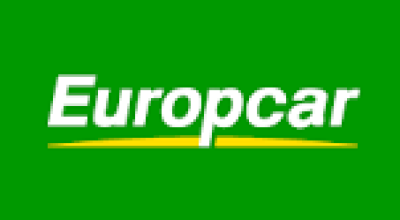After becoming a franchisee of Europcar, Europe’s leading car rental company, Israeli company Albar terminated its businesses in the occupied West Bank. Europcar thus joins other multinationals that have ended operations in illegal Israeli settlements in the occupied Palestinian territory in recent years.
Europcar Groupe S.A. (Europcar) is a French car rental company that leads the European car rental sector with 19 percent of the total market share. It operates in 133 countries around the world, mostly through franchise agreements with local companies.
Albar Mimunit Services Ltd (Albar) is one of Israel’s leading car leasing and rental companies. It is part of the Elezra Group, an Israeli conglomerate owned by Eli Elezra that includes real estate, automotive, and insurance businesses. Albar offers short-term car rentals, long-term leasing, cars for sale, consumer credit lines, roadside services, car shops, and car insurance, among other services.
In 2017, the Albar short-term car rental subsidiary, Albar Car Fleet Ltd, signed an agreement with Europcar to become the exclusive Europcar franchisee in Israel. In September 2017, the agreement went into effect, and Albar rebranded its car rental services as Europcar-Albar. Prior to 2017, Albar was the Israeli franchisee of US car rental company Dollar/Thrifty, a subsidiary of The Hertz Corporation.
According to Israeli research center Who Profits and our own research, Albar had car rental branches in two illegal settlements in the occupied West Bank, Beitar Iliit and Modi’in Illit. Both branches were still operating under the Europcar brand as recently as December 2017 but were recently shut down. A June 2018 email exchange with an Albar representative confirmed that the company does not have any other branches in the occupied Palestinian territory.
The closure of these two branches represents a divestment of Europcar from the illegal settlement industry and the Israeli occupation as a whole. Europcar thus joins a growing list of other multinational corporations that have pulled out of the settlement industry in recent years - an emerging human rights norm for businesses. This list includes Assa Abloy, CRH, Dexia, G4S, Orange, Unilever, Veolia, Vitens, and others.
Background:
As reaffirmed by 2016 UN Security Council Resolution 2334, the Israeli settlements constitute “a flagrant violation under international law.” According to the UN Guiding Principles on Business and Human Rights, every company has an obligation to respect internationally recognized human rights. UN Human Rights Council Resolution 31/36 called on companies “to avoid contributing to the establishment or maintenance of Israeli settlements, and tasked the UN High Commissioner for Human Rights with producing a database of all companies involved in such activities. In February 2018, the Office of the High Commissioner reported to have identified 206 such companies, four of them French companies.

